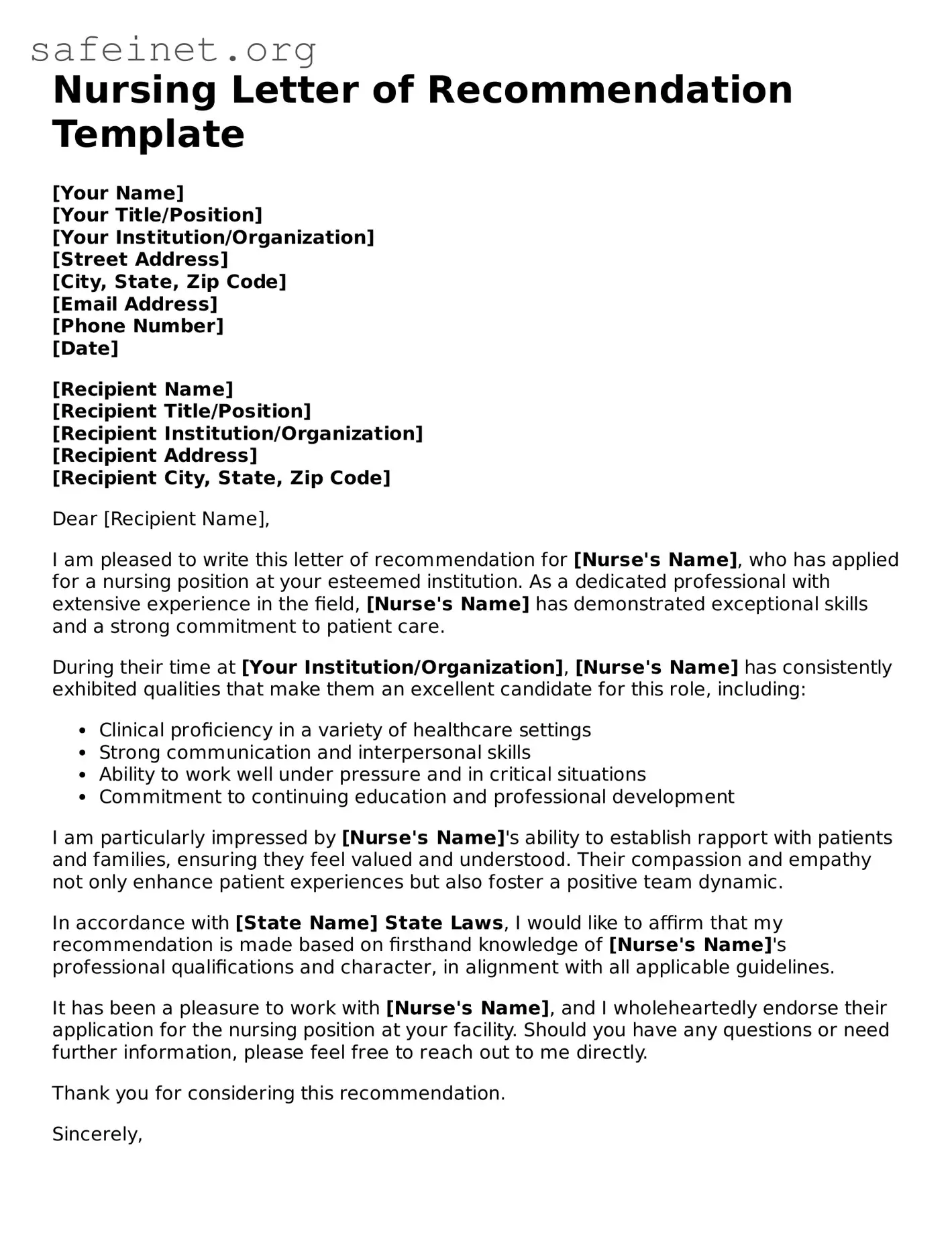Nursing Letter of Recommendation Template
[Your Name]
[Your Title/Position]
[Your Institution/Organization]
[Street Address]
[City, State, Zip Code]
[Email Address]
[Phone Number]
[Date]
[Recipient Name]
[Recipient Title/Position]
[Recipient Institution/Organization]
[Recipient Address]
[Recipient City, State, Zip Code]
Dear [Recipient Name],
I am pleased to write this letter of recommendation for [Nurse's Name], who has applied for a nursing position at your esteemed institution. As a dedicated professional with extensive experience in the field, [Nurse's Name] has demonstrated exceptional skills and a strong commitment to patient care.
During their time at [Your Institution/Organization], [Nurse's Name] has consistently exhibited qualities that make them an excellent candidate for this role, including:
- Clinical proficiency in a variety of healthcare settings
- Strong communication and interpersonal skills
- Ability to work well under pressure and in critical situations
- Commitment to continuing education and professional development
I am particularly impressed by [Nurse's Name]'s ability to establish rapport with patients and families, ensuring they feel valued and understood. Their compassion and empathy not only enhance patient experiences but also foster a positive team dynamic.
In accordance with [State Name] State Laws, I would like to affirm that my recommendation is made based on firsthand knowledge of [Nurse's Name]'s professional qualifications and character, in alignment with all applicable guidelines.
It has been a pleasure to work with [Nurse's Name], and I wholeheartedly endorse their application for the nursing position at your facility. Should you have any questions or need further information, please feel free to reach out to me directly.
Thank you for considering this recommendation.
Sincerely,
[Your Name]
[Your Title/Position]
[Your Institution/Organization]
